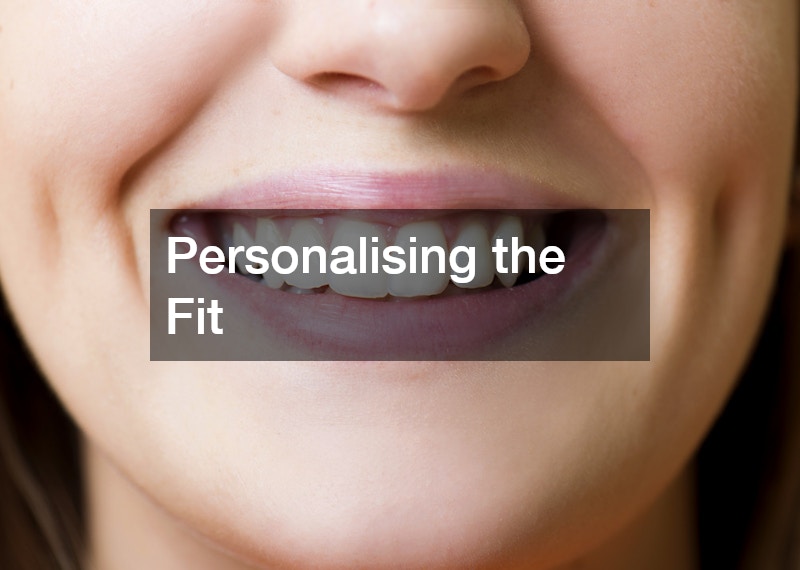The Customisable World of Dentures
Dentures have come a long way from the bulky, one-size-fits-all appliances of the past. Modern technology has transformed them into customisable solutions that not only restore function but also provide a natural appearance tailored to each individual.
Whether you’re considering dentures for the first time or looking to upgrade an older set, understanding your options is key.
What Materials Are Used to Make Dentures?
Common Denture Materials
Dentures can be crafted from several materials, each offering unique advantages. The most common material is acrylic resin, which is lightweight, cost-effective and easy to adjust during the fitting process. Acrylic is also favoured for full dentures as it provides a natural gum-like appearance.
Metal frameworks, often made from cobalt-chromium alloys, are frequently used in partial dentures. They provide superior strength and stability while remaining relatively thin and comfortable. Metal frameworks are less likely to break compared to acrylic, making them a durable option for long-term wear.
Another increasingly popular choice is flexible polymers. These lightweight, flexible resins allow for a snug fit and are especially useful for partial dentures where comfort and aesthetics are priorities. They tend to be less noticeable in the mouth and can adapt to subtle changes in the oral structure.
By offering a variety of material choices, dental professionals can recommend solutions that balance comfort, function and aesthetics for each patient.
Choosing the Right Material for You
Selecting the right material depends on several factors, including your oral health, budget and personal preferences. For example, if you need a lightweight and affordable option, acrylic resin may be the most practical choice. If strength and durability are more important—particularly if you’re replacing several teeth—then a metal framework might be recommended.
Appearance also plays a role. Flexible polymers can blend seamlessly with your natural gums, making them a good choice for patients concerned about visible clasps or bulkiness. Cost is another factor to weigh carefully, as some materials may have a higher upfront price but offer longer lifespan and reduced need for repairs.
Your dentist will guide you through the pros and cons of each option, helping you find the best balance between comfort, appearance, durability and affordability.
How Can Dentures Be Customised to Fit My Needs?
Personalising the Fit
One of the most important aspects of denture fabrication is achieving a comfortable and functional fit. The process typically begins with dental impressions, which capture the exact shape of your gums and surrounding structures. These impressions form the foundation for creating dentures that are tailored to your mouth.
After the initial moulds are made, several fittings may be required. During these appointments, adjustments are made to ensure the dentures sit comfortably without causing sore spots or affecting speech. Bite alignment is also carefully checked to ensure you can chew effectively and comfortably.
Modern techniques and materials allow for even greater precision. Some practices use digital scanning technology to design dentures that are highly accurate, reducing the need for multiple adjustments. This step-by-step approach ensures your dentures feel as natural as possible and support your daily lifestyle.
Aesthetic Customisation Options
Beyond function, dentures today can be customised to enhance your appearance. Patients often have input into the colour, shape and style of their artificial teeth to ensure the end result looks both natural and flattering.
Tooth colour can be selected to complement your skin tone and age, avoiding the overly bright or artificial look that some generic dentures create. Shape and size are also considered, allowing you to choose teeth that mirror the natural contour of your face and smile. In some cases, dentists may even reference old photos to replicate the appearance of your original teeth.
Gum shades can also be customised. Acrylic bases can be tinted to match your natural gum colour, creating a seamless transition and a more realistic look. For those wanting an enhanced smile, subtle changes in tooth alignment can even give the effect of orthodontic correction.
These aesthetic options mean dentures no longer have to look generic or “false”. Instead, they can be tailored to reflect your individuality, boosting confidence as well as function.
Dentures are far more advanced and personalisable today than ever before. From the wide range of materials—acrylic resin, metal frameworks and flexible polymers—to the ability to customise fit, colour, shape and style, modern dentures are designed with individual needs in mind.
Choosing the right denture involves balancing comfort, durability, appearance and cost. With the help of your dentist, you can select materials and finishes that not only suit your budget but also provide long-lasting performance. Add to that the customisation options available for both fit and aesthetics, and dentures become a truly personalised dental solution.
If you’re considering dentures, take the time to explore all the choices available. With thoughtful planning and professional guidance, you’ll be able to enjoy a set of dentures that not only restores your smile but also feels comfortable and uniquely yours.

